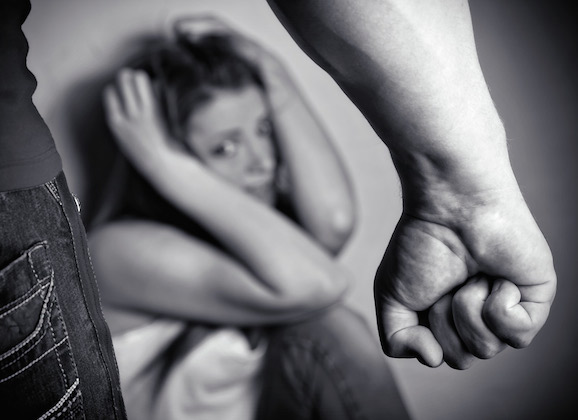
We’ve heard the statistics and we might even know someone who’s been in an abusive relationship, but we still never think it will happen to us. Even if it did, we tell ourselves that we would know better and that we could simply walk away.
Nobody could possibly know what it’s like to be in an abusive relationship until you are in one. You start off dating someone who seems nice and caring at first, but then suddenly turns ugly. By that point, however, you’re already in too deep. You have already fallen in love with that person, and struggle to accept that they aren’t the person you thought they were. You give them the benefit of the doubt and another chance. This one chance turns into a hundred chances, and suddenly you can’t get out of the vicious cycle.
First of all, society looks down on women who stay in abusive relationships and pities them for being “helpless” and “weak.” Domestic violence victims can’t be categorized into a stereotype, but range among all types of women. Yet society places a specific insecure, weak, vulnerable woman into the category of most likely to be in an abusive relationship.
Rather than ridicule or punish the man who commits the abuse, this wrong perception will fault the woman for putting up with it because she possesses these negative traits. Women are taught that it is our personality traits that got us into this problem, and therefore we feel we must solve it.
As a result, women are quick to blame themselves for why our significant other is acting so violently. We angered them, we upset them, we pushed their buttons — but none of this is true. It shouldn’t matter what you do or how you live your life, it is the man’s choice to react in a violent or physical way.
As little girls growing up, we learn fast to always be aware and to always be afraid. Girls are told to dress and act a certain way so as not to upset men, yet boys are not lectured on how to react when angry or treat women respectfully. A man’s anger is equal to his power, try and diminish it and you risk emasculating him. It is this gender stereotype that makes it easy for women to receive the blame for abusive relationships instead of the man.
You often don’t choose who you fall in love with, and you definitely don’t choose who hurts you. What you do choose is how you respond to it. Rather than believing you did something to deserve being called a nasty name or slapped across the face, believe your gut that tells you those actions were wrong. If it’s one thing women have that men don’t, it’s a killer instinct that never leads us wrong.
Women look for a loving relationship, not an abusive relationship. Therefore, it isn’t fair to say that it’s the woman’s fault for sticking herself in an unhealthy relationship. The search for love is not easy, and neither is opening up to someone or letting them in.
I know from personal experience that if you fall in love once, you generally don’t have a desire to do it again. You convince yourself that this person is the one and no matter what goes wrong, you’re going to stay right where you are. When things do go wrong, your first instinct isn’t to give up or leave, but to stick it out. Consequently, you end up settling and sinking yourself deeper into the mud.
Women might be victims of domestic violence, but that doesn’t mean we should be victimized, pitied or blamed. There are multiple other explanations for why some women stay in abusive relationships, but these explanations don’t involve them possessing weak traits or not having a brain. The last thing women in these relationships need is more criticism and judgement. What women need instead is understanding and support.
